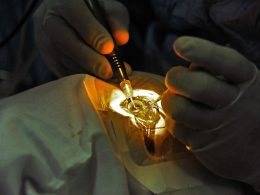Knee replacement surgery is a transformative procedure that has helped countless individuals regain mobility, reduce pain, and enhance their quality of life. While the surgery itself marks a significant milestone, the path to a full recovery involves a comprehensive approach that includes exercise as a cornerstone. In this article, we will provide a comprehensive guide to knee replacement recovery, highlighting the importance of exercise and offering valuable strategies to support patients in their rehabilitation journey.
- Understanding the Healing Process: Following knee replacement surgery, it is crucial to allow your body time to heal. Initially, the focus is on reducing swelling, managing pain, and promoting proper wound healing. Your healthcare provider will provide guidelines for post-surgical care, including pain management techniques, icing, and elevation. Adhering to these instructions and giving your body the necessary time to heal lays the foundation for a successful recovery.
- Early Mobility and Range of Motion: As healing progresses, early mobilization and range of motion exercises become vital. Physical therapists will guide patients through gentle movements and stretches to improve flexibility, reduce stiffness, and regain range of motion. These exercises typically include ankle pumps, heel slides, and gentle knee bends. Performing these exercises regularly, as recommended by your healthcare team, is crucial for restoring joint function and preventing complications such as joint contracture.
- Strengthening the Muscles: Building strength in the muscles surrounding the knee joint is essential for stability, balance, and optimal function. Physical therapists will introduce strengthening exercises tailored to your specific needs, focusing on key muscle groups such as the quadriceps, hamstrings, and glutes. These exercises may include leg presses, squats, step-ups, and resistance band training. Gradually increasing the intensity and resistance of these exercises over time promotes muscle growth, joint support, and improved overall functionality.
- Cardiovascular Exercise for Overall Fitness: Engaging in cardiovascular exercise is vital for enhancing cardiovascular health, weight management, and overall fitness. Low-impact activities such as swimming, cycling, and using an elliptical machine provide an excellent cardiovascular workout without placing excessive stress on the knee joint. Start with shorter durations and gradually increase as your endurance improves. Regular cardiovascular exercise not only strengthens the heart and lungs but also contributes to a healthier and more active lifestyle.
- Balance and Stability Training: Regaining balance and stability is essential for preventing falls and restoring confidence in daily activities. Incorporate exercises that challenge your balance, such as standing on one leg, practicing heel-to-toe walking, and utilizing balance boards. Yoga and tai chi can also be beneficial for improving balance, flexibility, and core strength. As you progress, gradually introduce more advanced balance and stability exercises to further enhance coordination and proprioception.
- Seeking Professional Guidance: Throughout your knee replacement recovery, seeking guidance from healthcare professionals, such as physical therapists, is invaluable. They can provide personalized exercise plans, monitor your progress, and make necessary adjustments to ensure a safe and effective rehabilitation journey. Physical therapists are skilled in assessing your specific needs, identifying areas of improvement, and guiding you through exercises that maximize your recovery potential.
Remember, every individual’s recovery process is unique, and it’s essential to listen to your body and respect its limits. Consistency, patience, and adherence to professional guidance are key to achieving a successful knee replacement recovery. Celebrate small victories along the way and stay focused on the ultimate goal of regaining strength, mobility, and an improved quality of life.
Sources:
- American Academy of Orthopaedic Surgeons (AAOS)
- Mayo Clinic
- Arthritis Foundation










